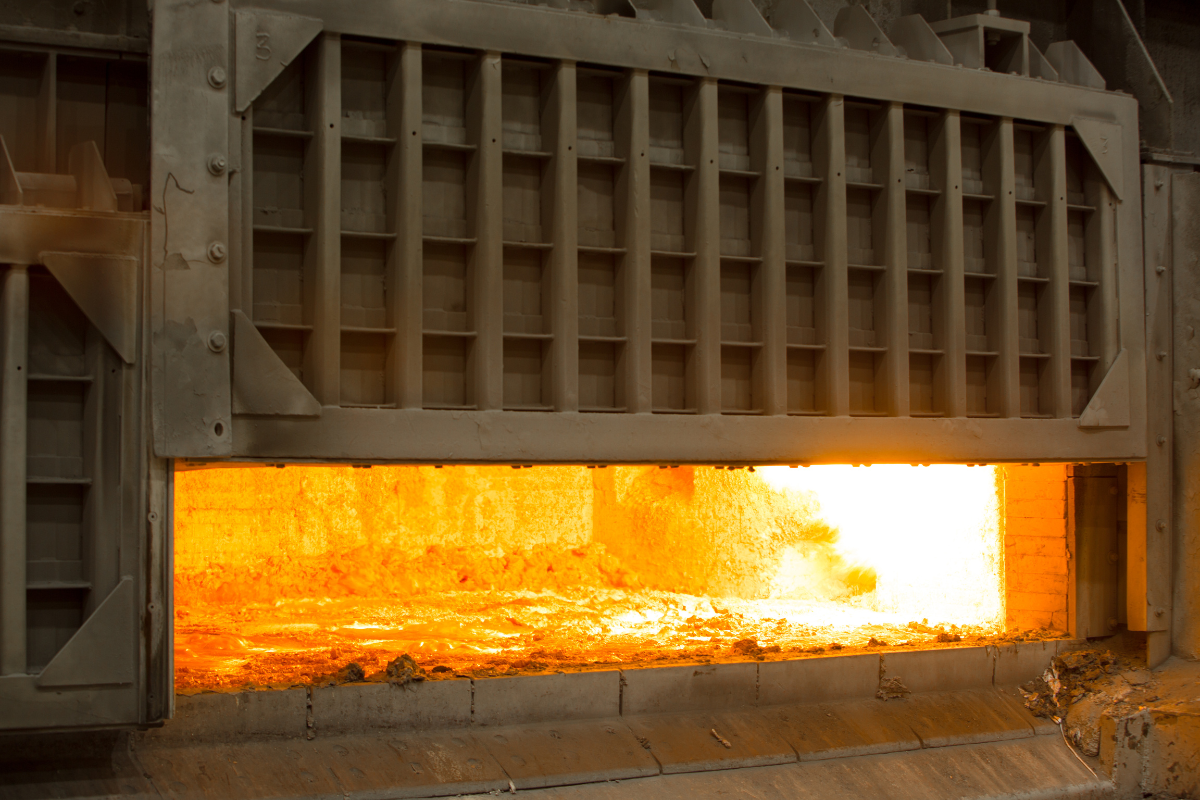
Missouri-based Phinix has applied for a patent for its aluminum purification technology. | Courtesy of Constellium
A secondary aluminum company has begun licensing a technology to reduce impurities in molten recycled aluminum, according to the REMADE Institute.
The REMADE Institute, a research organization funded partly by the U.S. Department of Energy, announced that a REMADE-funded R&D contractor, Phinix LLC, has begun licensing its scrap aluminum purifying technology to an unnamed recycling company.
In an interview with E-Scrap News, Subodh Das, CEO of Clayton, Mo.-based Phinix, said his company’s technology retrofits existing aluminum recycling furnaces and allows them to reduce the level of impurities so the scrap can be used in the desired end applications.
Phinix provided a general license, which means it can still offer the technology to other aluminum recyclers, he said. He’s under a non-disclosure agreement and can’t identify the licensee.
“The idea is to diffuse the technology to as many secondary aluminum scrap processors as possible,” he said.
Phinix has also been involved in a REMADE Institute-funded project to develop technology to better recover valuable metals from e-scrap. That technology, which Phinix is involved in licensing, uses gas-assisted solvents to extract metals from printed circuit boards.
As far as the aluminum recycling technology is concerned, Das explained that pure aluminum is used in a very limited number of demanding applications, and most aluminum in commercial use contains six elements in varying proportions: copper, iron, magnesium, manganese, silicon and zinc. Iron and silicon are present in bauxite, the virgin source of aluminum, and the other metals are added to achieve certain traits.
But the amount of each in scrap may not match what’s needed in the recycled-content product, so aluminum recycling companies will typically dilute the alloys by adding virgin aluminum, which is expensive and carbon intensive, Das noted.
Phinix’s technology, for which the company has applied for a patent, reduces the level of the alloying metals in molten metals to produce a recycled aluminum that meets virgin specs for use in a variety of products. Das’ company is working to scale up testing on all types of furnaces.
“For us to be useful, we want to try that in all commercially available melting practices,” he said.
The technology stems from a research project funded by REMADE starting in 2020. The project, titled “Selective Recovery of Elements from Molten Aluminum Alloys,” involved Phinix LLC, Worcester Polytechnic Institute, Kingston Process Metallurgy, Smelter Service Corporation and Certified Flux Solutions LLC. According to REMADE, the research project is still in progress, led by Das and overseen by REMADE’s tech team.

